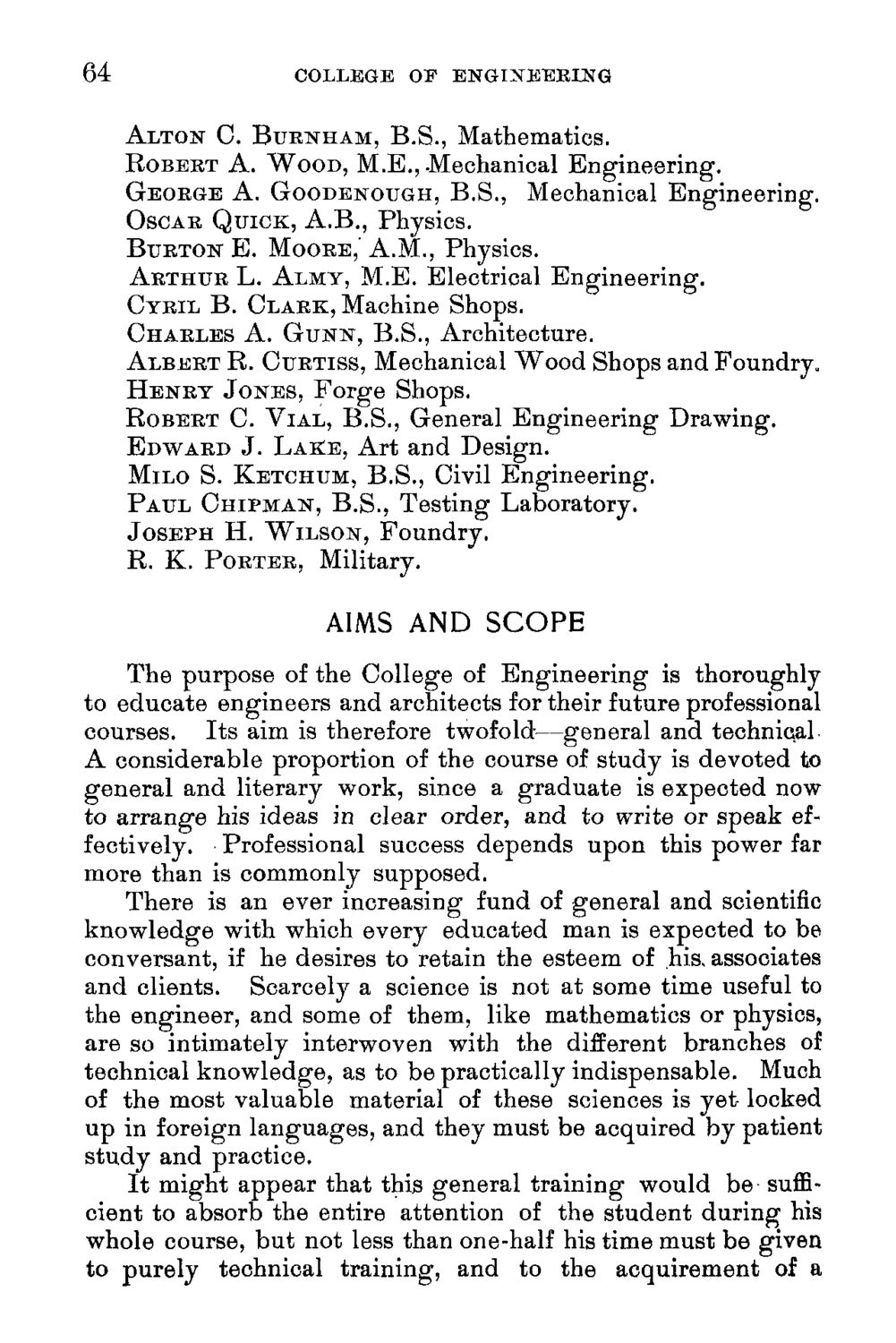| |
| |
Caption: Course Catalog - 1895-1896
This is a reduced-resolution page image for fast online browsing.

EXTRACTED TEXT FROM PAGE:
64 COLLEGE OF ENGINEERING ALTON 0. BFENEAM, B.S., Mathematics. ROBERT A. WOOD, M.E., .Mechanical Engineering. GEORGE A. GOODENOUGH, B.S., Mechanical Engineering. OSCAR QUICK, A.B., Physics. BURTON E. MOORE, A.M., Physics. ARTHUR L. ALMT, M.E. Electrical Engineering. CYRIL B. CLARK, Machine Shops. CHARLES A. GUNN, B.S., Architecture. ALBERT R. CURTISS, Mechanical Wood Shops and Foundry. HENRY JONES, Forge Shops. ROBERT C. VIAL, B.S., General Engineering Drawing. EDWARD J. LAKE, Art and Design. MILO S. KETCHUM, B.S., Civil PAUL CHIPMAN, B.S., Testing Engineering. Laboratory. JOSEPH H. WILSON, Foundry. R. K. PORTER, Military. AIMS AND SCOPE The purpose of the College of Engineering is thoroughly to educate engineers and architects for their future professional courses. Its aim is therefore twofold—general and technical A considerable proportion of the course of study is devoted to general and literary work, since a graduate is expected now to arrange his ideas in clear order, and to write or speak effectively. Professional success depends upon this power far more than is commonly supposed. There is an ever increasing fund of general and scientific knowledge with which every educated man is expected to be conversant, if he desires to retain the esteem of his. associates and clients. Scarcely a science is not at some time useful to the engineer, and some of them, like mathematics or physics, are so intimately interwoven with the different branches of technical knowledge, as to be practically indispensable. Much of the most valuable material of these sciences is yet locked up in foreign languages, and they must be acquired by patient study and practice. It might appear that this general training would be sufficient to absorb the entire attention of the student during his whole course, but not less than one-half his time must be given to purely technical training, and to the acquirement of a
| |